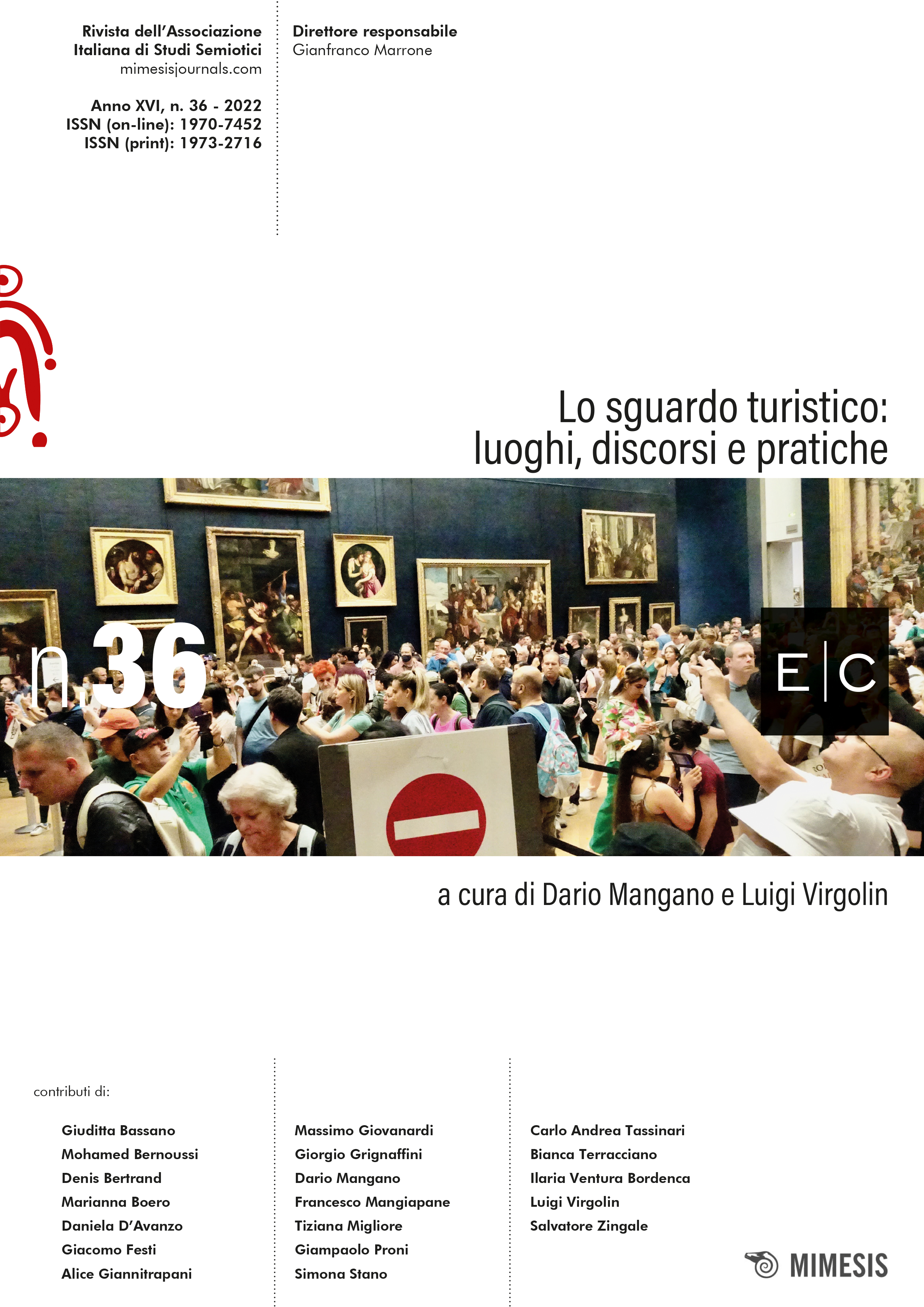Valori e immaginari turistici ai tempi del Covid-19: la comunicazione pubblicitaria
Abstract
During the COVID-19 pandemic, the way of doing and experiencing tourism in Italy has undergone a significant change. The planning of cross-border holidays was quickly replaced, by the idea of a proximity tourism, oriented by the “practical” value of safety and aimed at the (re) discovery of small villages, localities and itineraries within national borders. Advertising has played a key role in communicating such a change, conveying the emerging themes, values and sensibilities. The semiotic analysis of tourism advertising during the pandemic allows us to observe and to grasp the social change and, specifically in this study, the change in the meaning of tourism, presenting itself as a language capable of creating new values around the themes of travel, holiday and territorial identity. Precisely with the aim of analyzing the way the tourist imaginaries and meanings within the advertising narratives have changed in the different phases of the pandemic, this paper focuses on a corpus of national and regional commercials, relating to the period 2020-2021. The aim is to highlight, through a semiotic analysis, the themes, the narrative strategies, the predominant values, the stereotyping dynamics of tourism discourse, as well as the effects of meaning that derive from the dialogue between the advertising and the tourism discourse in the semiosphere.



